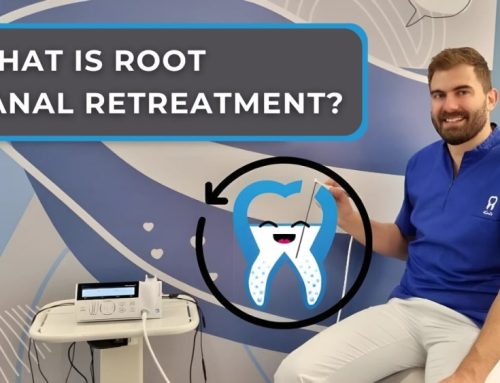Mouth ulcers: Causes, symptoms, and how to treat them
Mouth ulcers are a common and often uncomfortable condition that can affect your ability to speak, eat, and enjoy everyday life. Although they are usually harmless, they can be painful and frustrating.
This week’s blog from Dental Center 4Smile brings you key information about mouth ulcers, how to recognize them, and what you can do to alleviate them.
What are mouth ulcers?
Mouth ulcers are small lesions that appear on the inside of the cheeks, lips, tongue, gums, or roof of the mouth. Most often, they are canker sores (aphthous ulcers), but there are other types of ulcers associated with various causes.
Most common causes of mouth ulcers
The causes of mouth ulcers can vary, but some of the most common include:
- Mouth injuries: Biting the inside of the cheek, damage from dentures, or using a hard toothbrush.
- Stress and fatigue: Psychological and physical stress can trigger the appearance of canker sores.
- Poor diet: Deficiency in vitamins B12, iron, or folic acid.
- Hormonal changes: Often occur in women during their menstrual cycle.
- Allergies and sensitivities: Reactions to certain foods, like citrus or spicy foods.
- Infections: Viral, bacterial, or fungal infections, including the herpes simplex virus.
- Chronic conditions: Ulcers can be a symptom of diseases like Crohn’s disease, celiac disease, or autoimmune disorders.
Symptoms of mouth ulcers
Mouth ulcers typically have the following characteristics:
- Small, shallow lesions surrounded by a red border
- Pain and sensitivity, especially when eating, drinking, or talking
- In severe cases, there may be general fatigue or fever
How to treat mouth ulcers?
Treatment depends on the cause, but here are some general tips to alleviate symptoms:
- Oral hygiene: Regular brushing and using antiseptic mouthwashes helps prevent infections.
- Avoid irritants: Reduce intake of spicy, acidic, and hard foods that can worsen the pain.
- Topical treatments: Gels or creams for ulcers can relieve pain and speed up healing.
- Natural remedies: Rinsing the mouth with chamomile, sage, or saltwater can help reduce inflammation.
- Visit the dentist: If ulcers occur frequently or last longer than two weeks, it’s important to consult a dentist for diagnosis and personalized treatment.
When to see a dentist?
If mouth ulcers:
- Last longer than 14 days
- Are accompanied by other symptoms like fever or swollen lymph nodes
- Frequently recur without an obvious cause
- Involve larger lesions that do not respond to usual treatments
The dentist may conduct additional tests to determine the cause and provide the appropriate treatment.
How to prevent mouth ulcers?
Prevention includes:
- Regular and gentle oral hygiene
- A balanced diet rich in vitamins and minerals
- Reducing stress through relaxation and exercise
- Avoiding foods that trigger sensitivity
At Dental Center 4Smile in Europe, Croatia, we are dedicated to your oral health and well-being. If you are experiencing issues with mouth ulcers, contact us for expert advice and care.
Your health, our priority!
Dental Center 4Smile – the smile of health, the smile of happiness.















